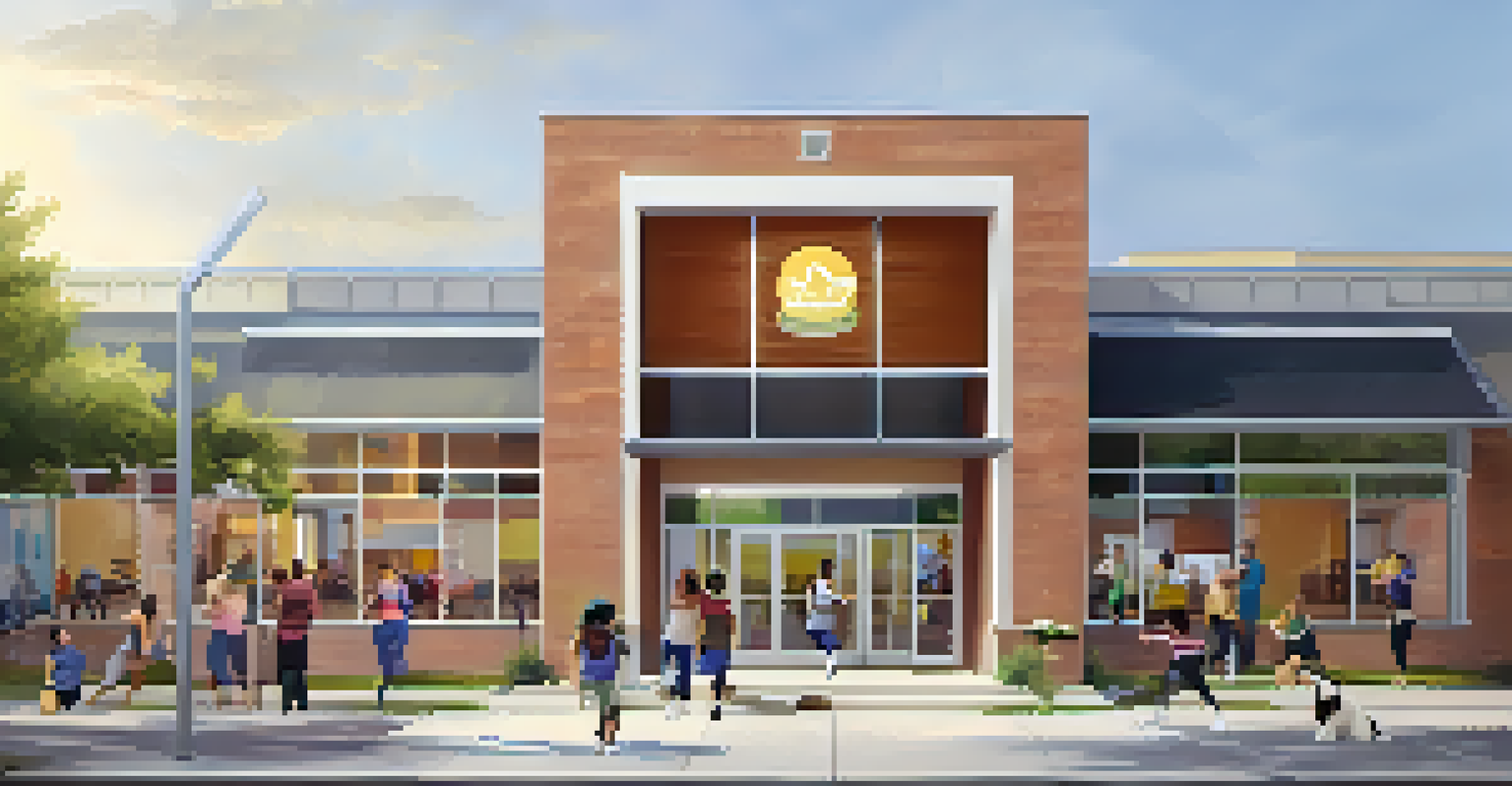Understanding Community Support Systems for Health and Wellness

What Are Community Support Systems in Health Care?
Community support systems in health care refer to the networks and resources that help individuals maintain their health and wellness. These can include local organizations, volunteer groups, and even online communities that offer guidance and assistance. Essentially, they bridge the gap between professional healthcare and personal well-being, making it easier for individuals to access the support they need.
Health is not just about what you’re eating. It’s also about what you’re thinking and saying.
For example, a community center might provide fitness classes, nutritional workshops, or mental health resources, all aimed at promoting a healthy lifestyle. These systems recognize that health is not just an individual journey but a communal effort. By engaging with these resources, people can find encouragement and motivation from others who share similar health goals.
Moreover, community support systems often foster a sense of belonging, which is crucial for mental and emotional well-being. Knowing that others are on a similar journey can provide comfort and reduce feelings of isolation. As we delve deeper into the role of these systems, it becomes clear they are integral to fostering a healthier society.
The Importance of Social Connections for Well-Being
Social connections play a vital role in our overall health and wellness. Research shows that people with strong social ties tend to experience lower levels of stress and better mental health. Connections with others can provide emotional support, practical help, and a sense of belonging, all of which are crucial for maintaining wellness.

Imagine a neighborhood where residents regularly check in on each other, share meals, or organize health fairs. This type of connection not only strengthens community bonds but also enhances individual resilience to health challenges. When people feel supported, they are more likely to engage in healthy behaviors, like exercising or attending medical appointments.
Community Support Enhances Wellness
Community support systems provide essential resources and connections that promote overall health and well-being.
Additionally, social connections can lead to greater accountability. If you’re part of a fitness group, for instance, you might be more inclined to show up for workouts because others are counting on you. Thus, fostering social relationships within community support systems can greatly enhance the overall health and wellness of individuals.
Types of Community Support Systems Available
Community support systems come in various forms, each designed to address different aspects of health and wellness. These can include formal organizations like health clinics, mental health services, and wellness programs, as well as informal networks like peer support groups or online forums. Each type serves a unique purpose in helping individuals navigate their health journeys.
The greatest healing therapy is friendship and love.
For instance, local health departments often provide resources for immunizations, health screenings, and education on disease prevention. On the other hand, community gardens or walking clubs can promote physical activity and healthy eating in a more informal setting. The diversity of these systems means that there is something for everyone, regardless of their specific needs or circumstances.
Moreover, technology has expanded the reach of community support systems. Online platforms and social media groups can connect individuals with similar health interests, even if they’re miles apart. This accessibility is particularly beneficial for those who may feel isolated or unable to engage with local resources.
How Community Support Systems Promote Mental Health
Mental health is an often overlooked aspect of overall wellness, but community support systems play a crucial role in promoting it. Many communities offer resources like counseling services, support groups, and workshops focused on mental health awareness. These resources can help individuals address their mental health needs in a supportive environment.
Consider a support group for individuals dealing with anxiety or depression. In these spaces, participants can share their experiences, learn coping strategies, and feel understood by others who are facing similar challenges. This sense of camaraderie can be incredibly healing, as it normalizes conversations around mental health and reduces stigma.
Social Connections Boost Mental Health
Strong social ties not only reduce stress but also encourage healthier behaviors and emotional resilience.
Additionally, community events that focus on mindfulness, stress management, or emotional resilience can equip individuals with tools to cope with life's challenges. By incorporating mental health into community support systems, we create a more holistic approach to wellness that considers both mind and body.
The Role of Local Organizations in Health Promotion
Local organizations are often at the forefront of health promotion within communities. They not only provide direct services but also advocate for policies that improve public health. By working with local governments and health departments, these organizations can address health disparities and ensure that resources are available to all community members.
For example, a nonprofit organization might run a program that offers free health screenings and educational workshops on chronic diseases. This proactive approach not only helps individuals understand their health risks but also empowers them to take control of their health. The collaboration between local organizations and community members fosters a culture of health that benefits everyone.
Furthermore, these organizations often rely on volunteers, which strengthens community ties and creates a sense of ownership among residents. When people feel invested in their community’s health, they are more likely to participate in initiatives and support one another. This cycle of engagement is essential for the long-term success of community health programs.
Building Resilience Through Community Support
Resilience is the ability to bounce back from challenges, and community support systems are instrumental in building this quality. When individuals face difficulties—be it a health crisis, loss of a job, or personal struggles—having a strong support network can make all the difference. Communities that come together to support one another create an environment where individuals feel safe to seek help.
For instance, during a health emergency, community members might rally together to provide meals, childcare, or transportation for those in need. These acts of kindness not only assist those in distress but also reinforce the bonds within the community. As people witness the strength of their network, they are more likely to feel empowered to face their own challenges.
Local Organizations Drive Health Initiatives
Local organizations play a crucial role in advocating for public health and offering direct services to community members.
Moreover, participating in community activities can help individuals develop coping strategies and resilience skills. Workshops on stress management, conflict resolution, or emotional intelligence can equip participants with the tools they need to navigate life's ups and downs. In this way, community support systems not only provide immediate relief but also foster long-term resilience.
The Future of Community Support Systems in Health and Wellness
As we look to the future, community support systems will continue to evolve to meet the changing needs of society. Advances in technology, shifts in demographics, and emerging health challenges will shape how these systems operate. For instance, telehealth services are becoming more prevalent, making it easier for individuals to access support from the comfort of their homes.
Moreover, there is a growing recognition of the importance of addressing social determinants of health—like housing, education, and economic stability. Community support systems are increasingly being designed to tackle these broader issues, ensuring that individuals have the resources they need to thrive. This holistic approach to health and wellness acknowledges that well-being is not just about medical care but encompasses all aspects of life.

Ultimately, the future of community support systems lies in collaboration. By bringing together healthcare providers, local organizations, and community members, we can create a robust network that supports health and wellness. As these systems continue to grow and adapt, they will undoubtedly play a pivotal role in promoting the health of individuals and communities alike.